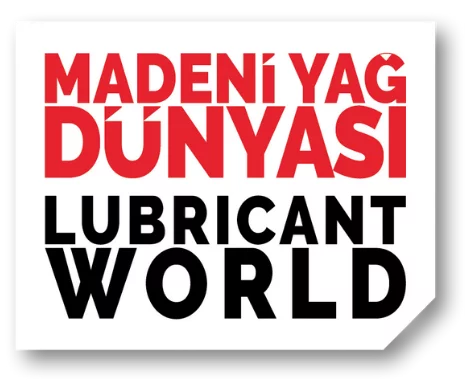Interview with Laura Pottorf, ExxonMobil Global Marketing Manager for Basestocks and Waxes
ExxonMobil, one of the global leaders of the lubricants industry, continues to shape the industry with its innovative and environmentally friendly investments. The company, which increased Group II base oil capacity of the facility in Rotterdam established in 2019, is now preparing for the Singapore Resid Upgrade Project. Thanks to its effective global supply chain, ExxonMobil stands by its customers even in harsh conditions like the pandemic and Russo-Ukraine conflict, and advises its stakeholders to have more than one solution and alternative technology.
About Laura Pottorf
Laura Pottorf graduated from the Department of Chemical Engineering at the University of Michigan in the USA in 1991 and has spent over 30 years of her career at ExxonMobil. Having gained experience in different departments of the company such as refining, planning, commercial operations, supply, and fuels marketing, Pottorf has served as the Global Marketing Manager for Basestocks and Waxes since 2020. Pottorf and her team are preparing for the Singapore Resid Upgrade Project start up in 2025, following oversight of successful investment development projects in Baytown and Rotterdam.

How would you describe the general overview of the base oil market after recent challenges like the pandemic and Russia-Ukraine crisis?
Our products play an important role in many diverse industries. As a result, the business can be impacted by many different factors. From both a feedstock and a product perspective, it is a global industry. I’m going to highlight two macro trends that will continue to define our industry. Firstly, growing population. The world’s population had exceeded the 8-billion-person mark and it is going to continue to grow. It is not just the total population that is growing but also the fact increasing numbers of people are going to be entering the “middle class”. As they have access to affordable energy and are able to improve their living standards, that increase in the middle class is going to have a growing demand for things like personal mobility and additional durable goods.
The second trend is the move towards a lower carbon future. As the world moves in that direction, there are going to be numerous technologies, solutions and options that will be needed to reach the goals of society. Both of these trends are going to shape the future of base stocks and impact everything from total demand to the underlying demand trends and the qualities that will be needed to support the efficiency goals of the engines as well as the emerging technologies that are coming in the future.
You mentioned the low carbon future. Are you as ExxonMobil ready for the scenarios that shape the base oil market, such as sustainability or re-refining?
When we look at investments, we consider a wide range of scenarios. But if we look at things on the basis of our Energy Outlook, our view is that the total demand for finished lubricants is going to continue to grow slightly for the next few decades. The underlying segments driving the demand have the potential to change.
So, let’s take passenger vehicle lubricants. The demand in that segment may be at a point in the not-too-distant future that it’s already at a peak and that’s going to happen as engine efficiency continues to increase and electric vehicles become an increasingly bigger portion of the total fleet. At the same time commercial and industrial demand will continue to grow and that is going to reflect the increased demand for durable goods.
From a quality perspective, we are going to see the demand for higher quality Group II and Group III base stocks continue to grow and Group I continue to decline. There is still going to be a need for Group I especially in certain applications where the Group I performance properties are better suited to those applications than Group II, such as marine and heavy industrial lubricants. In areas where there is overlap and you could have a Group I or a Group II molecule, we think that Group II is going to be selected. Even though top line demand is relatively flat, there is potential for the underlying trends to be quite a bit different.
We can see the growing trend of the Group II in ExxonMobil’s investments as well. Could you elaborate on your latest capacity expansion projects?
If you look at the landscape in Europe from a manufacturing perspective, most of the manufacturing had been largely focused on Group I. In 2019, we started up our Rotterdam project that added around 20.000 barrels a day of Group II into the marketplace. And just last year, we announced that we had expanded that by around an additional 5 bpd (barrel per day).
On top of that, if we look at the project in Singapore, we expect to bring on an additional 20.000 barrels a day of Group II production into that market, where the demand for high performance molecules is continuing to increase. In addition to EHC 50 and EHC 120, we are also expanding our product slate to include our new EHC 340 MAX, which is an extra heavy viscosity base stock that is going to help finished lubricant blenders have a product that is suited to their high viscosity applications. It really expands the coverage of our existing slate to an even broader range of applications. As such, we are very excited about that project.
We see that you have increased your investments and production capacity in the time of global adversities when many companies went for shutdowns and capacity rationalization. How did ExxonMobil overcome all these challenges?
Covid – 19 impacted all of us from personal and professional perspective, and every industry around the world. The global refining industry was no different from that. In that period, you had an unprecedented decline in the demand for transportation fuels. That rapid reduction in fuels demand caused inventories to peak, refining margins fell and multiple refineries around the world significantly reduced their production rates, albeit at a temporary basis for the most part. Demand for base stocks at that time also plummeted. In fact, in 2020 the demand was down seven percent relative to where it had been in 2019.
As safety protocols were put into place, the world started to move again after the pandemic. The industry began to recover and consequently there was a sharp increase in demand. During that transition period we saw a tightness in the market as that manufacturing capacity had to be restarted and supply chains were rebalancing. There was a lot of volatility. If we look at 2022, we also experienced another period of volatility and for many reasons. The linkage there is fuels as during that time you saw a big additional pull for fuels. So, unlike the period of the pandemic, there was a tightness in the market but this time some manufacturers were deselecting base stocks production so that they could produce more fuels.
Nowadays we have seen some relief from those recent supply and logistical challenges. But there are headwinds ahead that could continue to cause volatility. First, we are facing inflation. Inflation is rising around the world and that is putting pressure on the cost of goods and services. Ultimately, that pressure is going to result in an impact on demand. Additionally, the recent geopolitical events like the Russo-Ukranian conflict have disrupted some of the established trade flows and so sanctions have had a further impact. Manufacturers that were previously using Russian origin feeds have had to identify and secure alternatives. All of those changes are going to take time for the supply chain and the manufacturers to rebalance and for the markets to settle. I think that suppliers and customers could continue to be impacted by the logistical constraints and the fact that we have longer lead time deliveries in some cases.
Regarding our activities at ExxonMobil, this market is global so all of us are impacted by the events happening in the world. But there are a couple of things that have helped us to navigate these turbulent times. The first is the investments that we have made over the years in feed flexibility. That allows us to process a broader range of feeds over a wider range of market conditions. The second is really leveraging our global supply network. That helps to ensure that we can continue to maintain supplies to our customers even if there is a disruption at one site or in one part of the market. The third thing is the focus we have on working with our customers to understand and plan for their future needs. The more we can understand about the business and needs of our customers, the better positioned we are to meet those needs both in the short and the long term.

Could you tell us a little bit about ExxonMobil’s operations in Mediterranean region and Türkiye?
Demand in the Mediterranean region is similar to the trends we see across Europe. In general, total demand has been flat to declining. The quality standards have moved over time and you have the drive for more efficiency. So, we have seen the increase in the demand for Group II and Group III. Then Group I demand has been in decline. Most of the European production had primarily been Group I base stocks, then our project came on stream in 2019. There is some production in Europe for Group III as well, but Europe also needs to import in order to meet all of their needs.
As for Turkey, we have had a continuous business involvement in there for 118 years and we have got a strong presence there in the lubricants business. We manufacture and market a wide range of Mobil branded finished lubricants in the country. The demand in Turkey is actually growing slightly, so it’s flat to growing. Turkey is a major automotive and commercial vehicle manufacturer in Europe. So, there will be a pull for higher quality lubricants in Turkey in order to meet the fill for all of those new productions. From manufacturing perspective there is domestic production from the two Turkish refiners but there are also imports to help meet all of the demands in the market.
All over the world, we are facing the major problems caused by the shortage of base oils. Can re-refined base oils help us overcome this shortage?
Re-refining is likely to continue to grow around the world. Especially as governments continue to put policies in place that encourage collection and reprocessing. I think re-refining is going to have a role to play. The world needs to meet the needs of growing energy demand and to meet them sustainably. There is no single pathway to that, but a combination of multiple factors, such as the government policies in place, the technology developed and also consumer preferences.
The key challenge that the industry is going to face is ensuring how we have the base stocks and the qualities available that are going to meet the needs of the engines and the equipment that we have today, as well as future needs to keep all of those pieces of equipment and engines optimized and operating at peak performance. That is why we are investing in additional Group II production, as we see these quality trends. We are very proud of the work we have done to have a global footprint for our manufacturing sites and a global slate that allows us to source products from different parts of the world, in addition to the technical expertise that allows us to help customers meet the needs of their products and to do that in an efficient way.
During this transition I think those Group I plants that have scale integration with larger petrochemical complexes and, also those that are able to capture from their, co-products will be more successful. There are many different ways this transition may happen. It is hard to predict but the key there is that we are going to need multiple solutions and new technologies. So that we can really make sure that we are prepared for the challenges we face today and those that we are going to face going forward.
As an innovative and customer – oriented company, what else would you recommend to lubricant blenders?
Given all of the volatility, an important first step for producers and blenders is to evaluate their manufacturing and supply chains. And to think critically about whether or not they have the right level of contingency and resilience for those critical parts of the business. A key consideration that is common though to all of the blenders is ensuring that they have access to reliable base stock supply.
If we think about some of the base stock supplier attributes that need to be considered when choosing who to partner with, there are three important factors. First, the companies that have invested in modern manufacturing and plants integrated with a larger petrochemical complex, are generally in a better position to ensure reliable supply. They have the ability to process a broader range of feedstocks and with those changes in the feedstock still consistently produce quality products.
Secondly, having a global footprint and a global slate provides the supplier the opportunity to supply their customers by leveraging that global network. And that includes manufacturing as well as having access to strong logistics.
Finally, it helps to have a well-designed base stock slate that is backed up by technical experts. If you are facing a problem in the market, an expert can help you identify alternative formulation solutions that are approved ready off the shelf and help you implement those. That really allows you to respond more quickly and to keep the business optimized over a range of different market conditions.
How would you forecast the near future and 2023 for ExxonMobil?
I think that we need to continue to watch some of the macro factors that are facing us right now in terms of inflation and the geopolitical events. As an industry one of the things that we have demonstrated is our ability to adapt under a wide range of scenarios. I think keeping that ability to adapt is important as we move through 2023.
It’s hard to predict exactly how things are going to play out. We believe that electric vehicles will continue to play an increasingly big role in the overall car fleet. The pathways and exactly how the industry is going to move towards this lower carbon future is not clear. I think that is what creates the challenge for the industry. New technologies coming forward, government policies and consumer preferences have to be taken into account, and we need to see how the industry is going to change and evolve. We want to make sure we are prepared for that going forward.
From the base stock perspective, we are working on our additional supplies of Group II to meet the efficiency needs of the current engines. In the technology space, last year we announced a joint development agreement with BioAccelergy to look at the potential for producing bio-lubricants. During this transition it is important talking with our customers understanding what are they seeing from their customers and the needs they have going forward.
Thank you for this insightful interview. Would you like to share anything else with our subscribers and readers?
I want to thank you for this conversation. Lubricant World has come quite a long way over in a short period of time and I congratulate you for this success. We are very proud of the role that we have played in the industry and we remain excited about the opportunities ahead. I wish the readers and you the very best for 2023.




